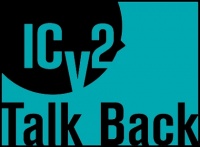 Gary Ray of Black Diamond Games, Ltd. in Concord, California read Dan Yarrington's recent column on the role of game distributors (see "Get In The Game--Should Distribution Die?") and responds.
Gary Ray of Black Diamond Games, Ltd. in Concord, California read Dan Yarrington's recent column on the role of game distributors (see "Get In The Game--Should Distribution Die?") and responds.The biggest advantage of the distribution system is variety, something I think the article got wrong. For example, half the role-playing books I brought into my store last year sold a single copy. I have similar numbers for board game sales. The distribution system allows me to tailor my offerings to my customer base, down to the lone individual. Bringing in a single copy of a game also allows me to test the waters, especially when there's a tremendous glut of product, like with Euro board games right now. Those single items make up 30% of my sales, allowing me to have variety while the heavy lifters, like the Pathfinder Core Rulebook which sold 60 copies last year, do their job.
Without distribution, I would be forced to either buy case quantities or set up direct accounts with major publishers. Ordering by the case is problematic in an industry where the average good "turn" is three copies a year. It's not likely I would ever order a case of six or twelve of a product unless I was certain it was a best seller. I've met many game publishers outside the game trade who are astonished at these "low" turn numbers, but low turn items are what differentiates hobby game stores and makes them special. Eliminating those single item purchases would reduce my variety significantly and based on my numbers, reduce my sales by 30%. Of course, we would devise schemes to make up for this, but the benefits of the distribution system are clear.
What would my store look like if I only carried high turning items that I could sell by the case, turns of 6 or more? Just look at Target, Walmart or the game section of Barnes & Noble. The strength of independent game stores is this extreme variety--that one off game bought for that one off customer. Without distribution that one-off publisher would be forced to sell direct to the customer, something most do already, but I'm sure many would prefer not to lose that additional sales channel.
Finally, what would get me excited about the loss of the distribution tier would be the death of MSRP, the manufacturers suggested retail price. The MSRP is a tyrannical, one size fits all solution that prevents game stores from adapting to their local business climates or creating alternate business models. Stagnant margins created by MSRP means cost of goods are fixed. Want to set up a store in a fancy part of town and charge more for games? Good luck! Not with established MSRPs. Want to have a store in California? Head for the outskirts of town or the inner city, the only places you can afford the higher fixed costs, as you have little control over product pricing. If removing distributors meant a move towards net pricing, like in the toy trade, sign me up. Otherwise, there are far too many benefits of the existing system.
The opinions expressed in this article are solely those of the writer, and do not necessarily reflect the views of the editorial staff of ICv2.com.


